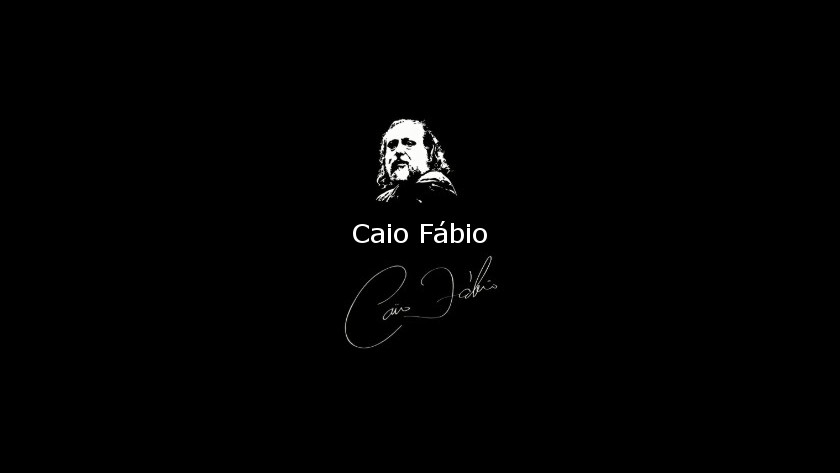
THE GOSPEL IN SCRIPTURES AND SCRIPTURES IN THE GOSPEL
THE GOSPEL IN SCRIPTURES AND SCRIPTURES IN THE GOSPEL
Jesus, the Key that opens the Scriptures
“Christ is the Master ; the Scriptures are only the servant. The true way to test all the Books is to see whether they work the will of Christ or not. No Book which does not preach Christ can be apostolic, though Peter or Paul were its author. And no Book which does preach Christ can fail to be apostolic though Judas, Ananias, Pilate or Herod were its author.” - Martin Luther
The gospels are historical narratives of the actions and happenings related to Jesus, as well as to His Words. The Gospel, however, is a spirit. The gospels are the body. The Gospel is the spirit in the body.
To many, the gospels are only narratives. To others, they are inspired words. To many others, they are only magical words. And for the majority, they are only the first four books of the New Testament, being, therefore, part of the Holy Bible.
However, the Gospel is spirit and life. God is spirit, and, therefore, His words are spirit and life, for they carry the power of Absolute Truth and produce life wherever they arrive.
To understand it better, suppose that the gospels had not been written. Surely, we know that even then, there would be a Gospel to be preached unto the ends of the Earth as Good News; viewed as it, the Gospel is a spirit, and not a book.
Hence, the spirit of the Gospel is only a way to express ourselves about the Essence of the Word. It is the Plenitude of the Revelation. It is the form of biblical interpretation that looks to Jesus as the Hermeneutic Key of this Revelation.
In no way it is being said here that only Jesus matters in the Bible, but, on the other hand, nothing matters if it does not flow from Him and nothing is Word of God if it is not compatible to Him, even though it may be “biblical” and “theological”!
I read the Bible based on Jesus and not Jesus based on the Bible. Therefore, my books are not considered “theological” by theologians, since in these writings there is rarely a theologically acceptable hermeneutic designation; and neither does one find in them systematizations that seek the logical closing of any body of thought.
This is because I believe that Jesus – who is God Manifest among us – opens up the Scriptures for us. Christ is the synthesis of the Scriptures and the Spirit of Grace is the hermeneutic agent that approximates me to the text with the faith that I will find the Word.
It is from there, then, that we interpret the Old Covenant, the Prophets and all of the New Testament. This because He is the Word! Its Absolute Incarnation, the Living Word of God, full of Grace and Truth! And the very words of Jesus can only be understood if they have their concretion in the Gospel lived by Jesus of Nazareth.
Look at the book of the Acts of the Apostles: it is a book of acts, of actions. But we know that the only absolute and untouchable works done on Earth are the Acts of Jesus. Therefore, there is Gospel in Acts, but Acts is not the Gospel. I say this because if Jesus’ criteria are applied to the acts of the apostles, the apostles themselves are always relativized.
When we read Acts, we do not read the Gospel of Grace – this one is only made whole in Jesus -, but the human attempt to begin to live according to the faith in Jesus. And, in such a process, there are successes, errors, mistakes, the action of the Spirit, childishness, ambiguities, miracles, differences, fears, boldness, wonderful courage, terrible doubts, and all of the other things concerning men who live in the Way. Therefore, the book of Acts of the Apostles is a book of history, and does not want to be seen as the Gospel.
The childish attempt to say that the church is the Body of Christ – and therefore, Christ was acting as He had acted before, but now in His Community Body – is pretty, but is not truthful as absolute value. The Peter that received the revelation is the same that received the reprimand: Get thee behind me, Satan (Mat 16).
In Jesus is all the revelation and all the reference to judge and understand whatever it is that would be canonical. Where the ‘spirit of the Gospel’ is present, there is something to take to the soul and for life. If not, I only see historical records of the infancy of faith and of the conscience permeating the whole of Scripture.
The exercise is not hard: it is a matter of looking at Jesus, making a way of observation. One should ask: What is the meaning of the talks and teachings of Jesus for Jesus Himself? The answer is one: See how He treated life, religion, the politicians, the poor, the sick, the outcast, the segregated, the forgotten, the untouchables, the tax collectors, the prostitutes, the holy rollers, everything and everyone. Checking one thing against another, we are liberated from the construction of two irreconcilable beings: the Jesus that lived full of love and grace, and the Jesus that taught things that only the authorized interpreters are able to “detect”.
In this way, then, never should a textual interpretation be done that does not coincide with the behavior and attitude of Jesus in the dynamic of his narrated movements and encounters.
Therefore, I compare everything with the spirit of Jesus, according to the Gospel. Only in this way is Jesus not made schizophrenic before our senses: what He said, He lived; and what He lived, is what He said.
“For in Christ all the fullness of the Deity lives in bodily form, and in Him are hidden all the treasures of wisdom and knowledge.”
“He is the splendor of the glory of the Father and the EXACT expression of His Being, before all things, holding all things together by the Word of His power!”
Look at Him, and everything will be interpreted! The rest, brethren, is the invention of those who do not want to deal with people and would rather deal with letters.
And the reading of the Old Testament?
“The time is coming...when I will make a new covenant…: I will put my law in their minds (no longer in tablets)and write it on their hearts. I will be their God, and they will be my people. (…) For I will forgive their wickedness and will remember their sins no more.” Jeremiah’s Cry (31.31-34)
After such devotional exercises about the New Testament, many send me questions of perplexity and confusion in relation to the content of the Old Testament.
But I am sure that this conflict was absent in Paul and the writer of Hebrews, for example. I say this because Paul makes use of the Old Testament, the psalms, e the prophets, to show that that “Human Phase” had been buried in Jesus; and that, according to the same Scriptures, in Christ a new conscience would begin, not as commands of exteriorities, but as perception founded upon love, justice and truth – all of this engraved and written in the heart.
Paul also says that the Law was given, and with it the causalities and its effects, so that the conscience of sin in us would be amplified (exaggerated). Paul himself revealed that the Law was part of the infancy of consciousness, as we have referred to it here, because it served as a guide, a servant who picks up and drops off at school – although, now, already walking in the Way by faith, he says that we no longer need the Law-Nanny.
Besides, the whole argument of the apostle about the justification by faith, according to the gift of Grace, was founded in declarations from the psalms and the prophets; as well as, beyond what was openly declared in the Texts, Paul also interpreted what was only implicit in the reading – and he does this reading of the Scripture through Jesus and not Jesus through the Scriptures.
This is because Paul read the Old Testament from the conscience acquired in Jesus. In other words: Jesus was Paul’s “Hermeneutic Key”, and from that Key, Paul interprets Abraham, Sarah and Hagar, Ishmael and Isaac, Esau and Jacob and others – always with the purpose of showing how Jesus was the fulfillment of all things.
And it was also from the same “Hermeneutic Key” that the writer of Hebrews interpreted the ceremonials and the rites described in the Books of the Law, discerning their symbols, utensils and architectures.
The letter to the Hebrews reaches the point of saying that Jesus was bigger than Moses, and bigger than anything in the Old Testament; calling what was pertinent to the Old Covenant obsolete and without utility, “antiquated, aged and soon to disappear.” Today, he would say that the Old Testament was called “old” because of its passed expiration date.
So, in the Old Testament, the Old Covenant was as follow:
1. The justification by faith, by which all were justified, from Adam to John the Baptist. The chapter 11 of Hebrews declares it. Although people would live under the "law’s regime" according to Paul. The justification, therefore, according to Hebrews and Paul (in all his letters), always happened by faith, and never by law. It is, at last, Paul’s teaching in his letters to the Romans and Galatians, specially;
2. The man’s tentative of self-justification through the law; It is said that whoever wish to justify him or herself by law would have to fulfill the entire law. And Jesus, continuing what was said by the prophets, made it clear that such obedience to the law would have to happen inside and out. But what David who said: "If you would observe the iniquity, O Lord, who would stand before you?" And then also declared: "Blessed is the man on who the Lord will not count iniquities";
3. The declaration, specially found on the book of Job, that calamities of life are not absolute as a determinant of God’s judgment upon men. And Job himself is the proof of it. Usually, everybody rips what they sow, even if it doesn’t seem calamity. Very often, only the person will realize the consequences. Therefore, according to Job and also the Ecclesiastes, the calamities don’t come upon us as an absolute result of a law of cause and effect; The calamities therefore don’t carry the power of justice as many times is the innocent man who receives the consequences while the man who did something wrong doesn’t suffer the effect of his wrong deeds. What nobody knows is the size of the damage caused on the soul of this particular person as when the consequences don’t come as an external agent (calamity) it comes as an internal bad (fear, loneliness, agony, loss of existential meanness, suffering of hate, fear of death, etc.);
4. What you can’t find in the Old Testament is justification without blood. In the Old Covenant, the law itself was sanctioned with bloodshed; as seen on the first rite of "spiritual garments" done by God in Genesis, when He covered man and woman with dead animal skins to dress them.
So my brothers, in the Old Testament, we have the manifestation of the human devotion in a primitive form as we have a master line indicating the Way, and it is a line covered in blood of goats and bulls; Until the Lamb came, which had already been sacrificed since before the world was made (therefore, long before the law); and, in Him, all the law – the commandments of social and individual behaviors (ieg.10 commandments) as the ceremony rites – were fulfilled; And that done, everything else became obsolete as what has prevailed in flesh and explicit way is the Gospel of the New Covenant; And in Him, the obedience is a consequence of faith which flows from the Love who before hand loved us first and gave himself for us.
For those who still live in the law, the emotion that powers the ‘engine of the obedience’ is the fear. But on the Way of the Gospel everything loses its mean if it isn’t the love and the gratitude what motivates the men.
At last, I want to say that, in the existence there is cause and effect in all things (legal justice, natural laws, economic laws, physic laws, in the relations laws, marriage laws, business laws, etc.) – but not in what is relative to the Salvation in Christ according to the Gospel.
In the Gospel, the law is kept to the State for the regulation of social affairs (Romans 13). But the Law nothing has to do with the justice of God for the salvation, which redeems even the condemned by the law as happened to the robber on the cross beside Christ.
So, in the old times, there were people trying to live according to the law with all their sincerity and there were people pretending to keep the law with all their falsehood; And also there were people living under the law but by faith and hope on a Greater Love that would absolve them of the rigor of the law which exposed them as transgressors.
Whoever dedicates to studying the gospels and the uncountable affirmations made by Paul in his letters, especially in Romans chapters 9 to 11, will learn that the purpose of the law is Christ.
Jesus, the key to open the heart.
"And Pilatus asked Him: What is the Truth?"
Considering that Jesus is also an historical information – as He existed and we weren’t there when it happened; reason why we completely depend on the gospel’s description of Jesus in order to discern better His spirit - however, the discerning of who He was and is, only happens with a revelation from God into the heart.
The Truth doesn’t exist as an explanation but only as incarnation. The truth made itself flesh! It is someone. The truth is a person! Therefore the truth can only be lived but not thought. All thought about the truth comes from the experience. The truth isn’t a subject of prose… The Jesus of the Gospel isn’t to be accepted, but to be known. The Truth which I see in Jesus – incarnated in Him – I must know in my own incarnation, the unique state of existence that I have had till today.
It was like that with Peter. He met the Truth in Jesus and he had to experience it himself. Probably he experienced a lot more truth on the day when he denied Jesus than he did on the night of the transfiguration.
However it is necessary for each one of us to know Jesus and His Word, for ourselves. It’s necessary for all of us to learn and have our own consciousness in faith, in order to live the Word in ourselves.
Summarizing, the Incarnation is the hermeneutic key to the biblical knowledge, but this key must open the heart first. And it only happens when the Truth meets the Life. And this event only happens on the Way, and this is what we call consciousness of the Gospel.
That’s why I would like to take advantage of this essay to propose a personal and liberating exercise:
· I would like to invite you to take the gospels and read it as if it was your first time, and do it as if you had never listened to an interpretation of it before. And then you will be able to see that what I am saying is just a ‘new repetition’ of what has never changed and when they tried to change it was never for better, and it is eternal: the Gospel.
The necessity of writing the message of Jesus came from the growing time distance of the historical source – Jesus of Nazareth Himself (Luke 1:1-4; John 20:30-31).
In the beginning of the 70s A.D., almost all of the eyewitness of the risen Lord had died (Luke 1:2;1Co 15:3-18). This chronological time distance between Jesus and the communities could only be overcome by the written word. And so were formed the two great collections or "corpus" of Paul’s letters and the Gospels.
· I then, would like to emphasize the necessity of reading the New testament on the most probable chronological sequence of its production: 1 and 2 Thessalonians; Galatians; Ephesians; 1 and 2 Corinthians and Romans; Colossians; Philemon; Philippians; 1 and 2 Timothy and Titus; 1Peter; Mark; Matthew; Hebrews; Luke; Acts; James; Jude; 1, 2 and 3 John; the gospel of John; 2 Peter; and Revelations.
As a warning, I must say that the first enemy to be defeated in a biblical study is the pre-conditioning in the interpretation.
So, beloved brother, ‘wash your brain with water and soap’ and start your personal reading being open to the Word and t the Holly Spirit.
Soon you will start seeing the real Jesus on the pages of the gospels! Try it!
May the Grace of our Lord Jesus Christ be with you.
Caio Fábio
- - - - - - - - - - - - - - - - - - - -
Translation: Joel Costa Jr. (Jota)
Text revision: Thiago Fuschini

